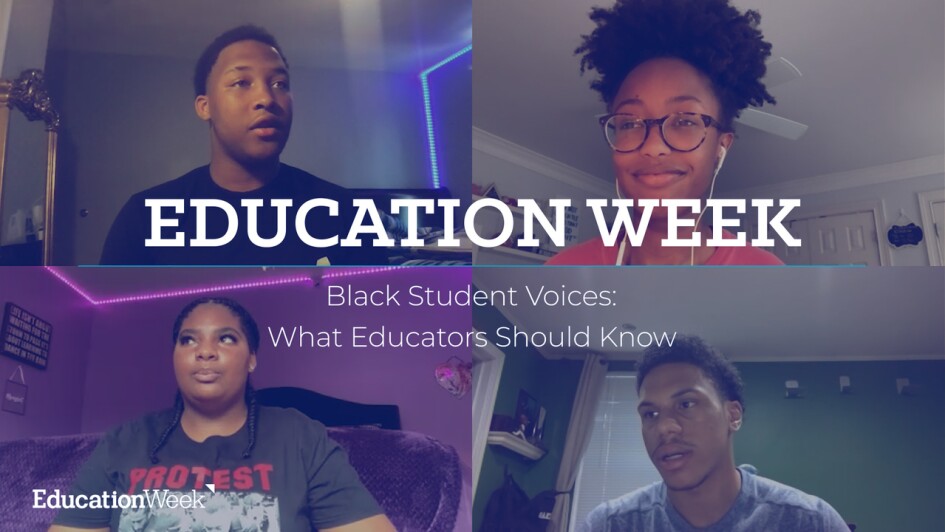As the trial of Derek Chauvin, the Minneapolis police officer accused of killing George Floyd, comes to a head, teachers may struggle with how to talk about issues of racism and police violence with students.
The discussions can be challenging and uncomfortable, but they are needed. Chauvin faces charges of second-degree unintentional murder, third-degree murder, and second-degree manslaughter for the killing last May of Floyd, a Black man. A video of Floyd gasping for breath as the former police officer pinned him to the ground with his knee quickly went viral, setting off a protest movement against police brutality and systemic racism across the United States and around the world.
Days after the trial began on March 29, Daunte Wright, 20, was killed by a police officer in the nearby community of Brooklyn Center, Minn., sparking protests there and elsewhere. That officer, Kim Potter, who was said to have mistaken her gun for a Taser weapon, has been charged with second-degree manslaughter in the shooting death of Wright, who was Black.
Then, on April 15, officials in Chicago released body camera footage of a Chicago police officer fatally shooting 13-year-old Adam Toledo, a 7th grader who lived in Little Village, a predominately Latino neighborhood on the city’s West side.

Attention to issues of racism, race-related violence, and police brutality will likely grow in the days ahead as closing arguments begin in the Chauvin case.
To help educators think about how to discuss these cases and other race-related violence and how to support Black students and other students of color who may be distraught by what they read and see in the media, Education Week has compiled some resources from its archives and elsewhere. Here are a few:
News articles from Education Week writers:
- 15 Classroom Resources for Discussing Racism, Policing, and Protest
- You Have Anti-Racist Curriculum Resources. Now What Do You Do?
- The Violent History of White Supremacy Is Rarely Taught in Schools. It Should Be
- Are America’s Schools Ready for Tough Talk on Racism?
- ‘Teachers Cannot Be Silent': How Educators Are Supporting Black Students After Protests
For Black students’ views:
- What Abolishing the Police Means to Me: A Student’s Perspective by high school student M’munga Songoloy
- Black Student Voices: What Educators Should Know (a video collection)
Some opinion essays:
- 5 Ways to Show You Care for Your Black Students, by Jaleel Howard
- A Black Teacher’s Letter to His Younger Self, by Lebon “Trey” D. James III
- How to Make Anti-Racism More Than a Performance by Bettina Love
- The Persistence of Education Inequity: A Father and Son’s Exploration of Race and Schools, a video conversation with Tyrone Howard and Jaleel Howard (one hour)
Some classroom resources from national groups:
- Anti-Racism Videos To Share With Kids, from We Are Teachers
- Talking About Racism and Violence: Resources for Educators and Families from Colorin Colorado
- 9 Resources for Teaching Anti-Racism, from ISTE (International Society for Technology in Education)
- Resources for Teaching About Race and Racism, from The New York Times
- Resources for Talking About Race, Racism, and Racialized Violence With Kids, from the Center for Racial Justice in Education




